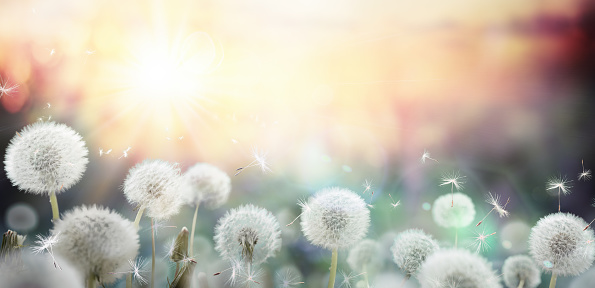
How to reduce allergy symptoms
Pollen allergies have a detrimental effect on the quality of lives of a large part of the world population. Learn how to reduce the effects
Almost 400 million people around the world suffer from springtime allergies. Unfortunately, this figure is growing every year, particularly because of climate change. Winters are shorter, summers are longer, plant pollination patterns are changing and we are over-exposed to certain allergens.
The most common allergies are cause by pollen from gramineous plants, or grasses (which have long, thin stalks), which grows abundantly. Sneezing, mucous, runny eyes and fatigue are all symptoms of hay fever or pollinosis. Although it is not considered a serious disease, the World Allergy Organisation says that rhinitis (an itchy nose, red eyes, sneezing) has a significant impact on the quality of life of sufferers and their families.
As well as suffering from itchy eyes and nasal congestion, two in three people with allergies develop bronchial asthma and must learn to live with a cough, wheezing chest and a feeling of breathlessness. It can become a chronic condition, but experts say that with suitable prevention and treatment, sufferers can get through springtime without too much trouble.
Tips for staving off discomfort
- Stay away from the countryside
If you are allergic to pollen, avoid outdoor activities in the mountains and on days when there is a high pollen count. There are mobile apps that can give you the pollen count, some of which are Polen Control, Alerta Polen and Alergo Alarm.
- Keep the windows closed
Keep your house clean and dust-free, with the windows shut during the day (the pollen count is lower at night). Ventilate your home at sunset only. Five minutes with the window open is enough to refresh the air in a room.
- Purify the air
Air purifiers can be useful in the home. They remove contamination from outside, cleanse the air of harmful particles and reduce exposure to allergens.
- Do the washing
When you have been outside for a long time, put your clothes in the washing machine when you get home to remove the particles stuck to the material, and take a shower.
- Wear sunglasses
Protect your eyes by wearing sunglasses in springtime. This will help to stop the constant itching, redness and tears. When the pollen count is high, you might like to cover your nose and mouth with a mask.
- Do not self-medicate
When the symptoms of allergy start, see a doctor and do not self-medicate. The medical treatment for this condition is based on corticosteroids and a wide variety of antihistamines, which inhibit the effect of the substance responsible for most allergy symptoms.
Immunotherapy is a commonly treatment, as are vaccines, which tend to be both effective and long-lasting.
If you follow these tips you will significantly reduce your allergy symptoms, leaving you free to enjoy the season with better health and more enthusiasm.
You can't stop spring from coming, but you can make the most of it. Ch. Friedrich Hebbel, German poet.
This post is also available in: Italian
